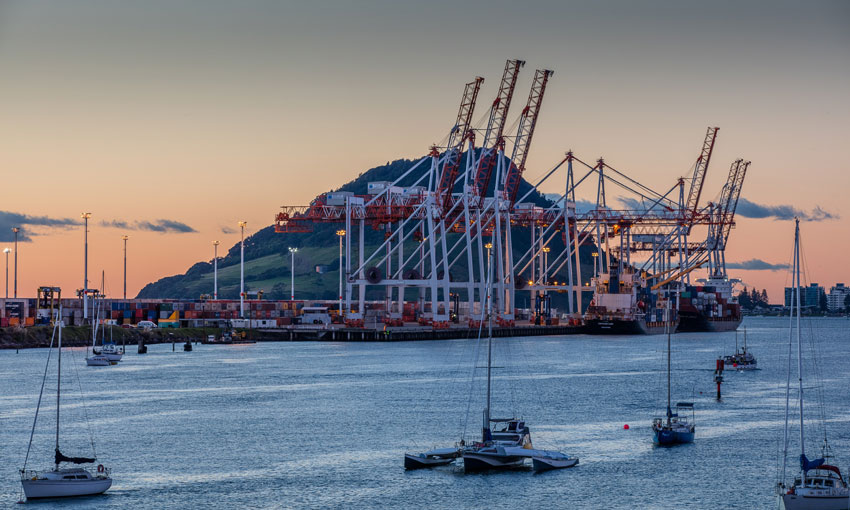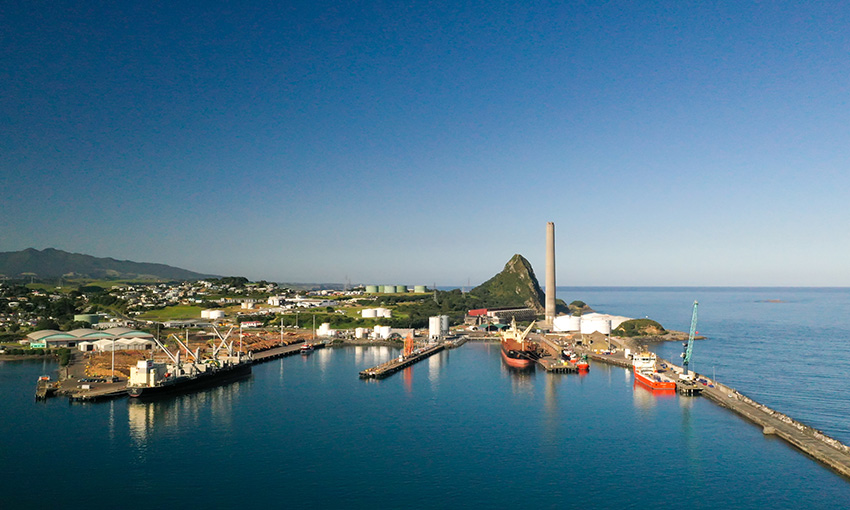THE PORT of Tauranga has released its results for the financial year ending 30 June 2024 (FY24), depicting modest figures after facing a variety of challenges.
Volumes at New Zealand’s largest port were affected by “significant” domestic and international supply chain challenges, with total cargo volumes for the year having decreased by 4.2% to 23.6 million tonnes.
Container volumes for the year also decreased 2.5% to 1.14 million TEU, thought the port said the second half of the year saw significantly higher volumes than the first, with container numbers increasing 13.7% and total trade growing 3.3% between the two six-month periods.
Revenue for FY24 decreased 0.8% to NZ$417.4 million, while EBITDA saw a decrease of 7% to NZ$203.7 million. The port company says operating costs increased 3.8% to NZ$218.6 million.
Underlying group profit decreased by 12.8% to NZ$102.7 million, compared with NZ$117.1 million in FY23. The reported group net profit after tax of NZ$90.8 million includes a one-off deferred tax expense of NZ$11.9 million due to a change in tax legislation.
Imports fell significantly 13.4% compared to the previous financial year, whilst exports saw a slight increase at 0.9%.
Port of Tauranga chair, Julia Hoare, said the result was pleasing after a difficult start to the financial year.
“We have seen a lot of volatility in demand, with big increases in log and kiwifruit exports at the same time as significant decreases in imports,” Ms Hoare said.
“Port productivity is a national issue and is of great concern to importers and exporters seeking efficient access to international markets. Currently, less than 30% of vessels arriving at Tauranga as a last New Zealand port are on time.”
Port of Tauranga chief executive Leonard Sampson said the current economic conditions and operating environment continued to be “complex and challenging”.
“I’m pleased that our scale and resilience has again come to the fore in the year-end results,” Mr Sampson said.
Port of Tauranga’s subsidiary and associate company earnings decreased 29.3% compared with the previous year.
Profitability at Northport, PrimePort Timaru, Timaru Container Terminal and Coda Group was affected by reduced cargo volumes due to economic conditions, says the port, though says this was offset by strong performances from Quality Marshalling and PortConnect.
Port of Tauranga said congestion in Asia caused by ships avoiding the Red Sea has worsened, with delays plaguing ports in Singapore, Malaysia, China, Sri Lanka, and United Arab Emirates.
The threat of escalating conflict and global economic conditions are also influencing cargo volumes and costs globally, the port acknowledged.
“We expect export log volumes to return to pre-2023 levels due to lower international prices. The domestic economy is also likely to have a continuing effect on imported cargo volumes,” the announcement said.
“Despite the many challenges, Port of Tauranga’s Board and management remain confident of its resilience into the future due to the Port’s operational strength, diverse cargoes, and multiple income streams.”
Port of Tauranga will provide guidance for the 2025 financial year in late October this year.





